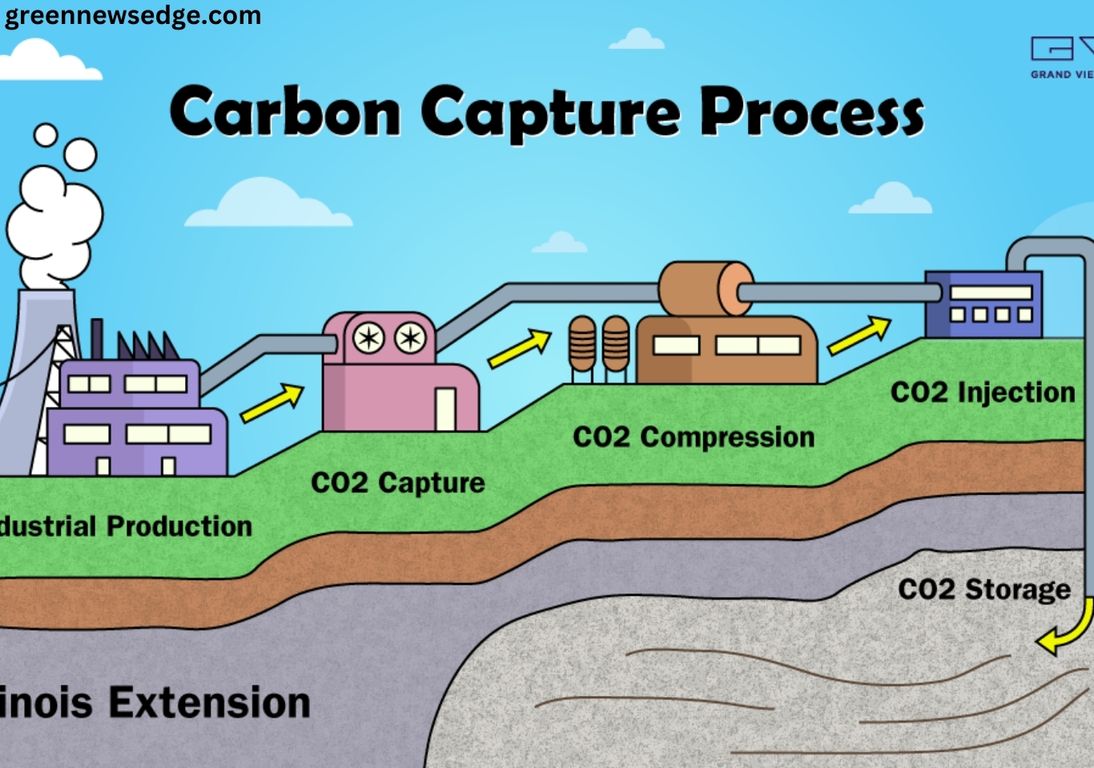Mayors and local leaders from 39 states are calling on Congress to safeguard clean energy tax credits that have driven job creation and billions in investments. These incentives, established under the Inflation Reduction Act (IRA), have supported hundreds of clean energy projects, boosting economic growth and sustainability across the country. However, a recent funding freeze by the Trump administration has raised concerns about the future of these critical programs. With Republican-led states benefiting the most from these tax credits, local leaders warn that repealing or rolling back these incentives would jeopardize jobs, increase costs for American households, and stall progress in clean energy infrastructure. Their appeal underscores the bipartisan impact of the IRA and the urgent need for congressional action to maintain funding stability.
The Impact of the Inflation Reduction Act
The Inflation Reduction Act (IRA), a cornerstone of the Biden administration’s climate strategy, has been instrumental in advancing clean energy initiatives across the United States. Since its enactment, the IRA has facilitated the launch of 750 clean energy projects, generating 400,000 jobs and attracting $422 billion in investments. These incentives have played a crucial role in accelerating the transition toward renewable energy, strengthening domestic manufacturing, and fostering economic growth in communities nationwide.
Despite its measurable success, the Trump administration moved to suspend funding for various programs under the IRA, creating uncertainty for state and local governments that rely on these resources to develop sustainable infrastructure. The decision threatened to stall projects already underway and disrupt future investments in clean energy. However, the tax credits established by the IRA remain protected, as altering or repealing them would require an act of Congress. This safeguard ensures that, for now, funding for key energy initiatives continues to flow, supporting local economies and job creation. With mounting political and legal challenges surrounding the administration’s funding freeze, the fate of these tax credits remains a pressing concern for policymakers, businesses, and communities committed to a clean energy future.
Republican-Led States Benefit the Most
Despite opposition from many Republican lawmakers, Republican-led states have emerged as the primary beneficiaries of the Inflation Reduction Act’s (IRA) clean energy tax credits. These incentives have fueled economic growth, spurred private-sector investment, and supported infrastructure development in communities across the country. However, the Trump administration’s decision to freeze funding has raised serious concerns about the long-term viability of these projects.
In response, 133 mayors and local leaders representing 25 million Americans have signed a letter urging Congress to uphold these tax credits and prevent any rollbacks. The letter underscores the widespread economic impact of clean energy incentives, warning that eliminating or reducing them would not only jeopardize ongoing projects but also lead to significant job losses and increased financial burdens on households. With many of these investments concentrated in Republican-led districts, the suspension of funding threatens to disrupt local economies, stifle innovation, and hinder America’s progress toward energy independence.
By calling on Congress to protect these incentives, local leaders are emphasizing the critical role of clean energy investments in strengthening communities, reducing energy costs, and creating sustainable job opportunities. Their appeal highlights the bipartisan benefits of the IRA and the urgent need to maintain its provisions.
The Largest U.S. Investment in Climate Action
The Inflation Reduction Act (IRA) represents the largest federal investment in climate action in U.S. history, allocating billions of dollars in grants, loans, and tax incentives to accelerate the transition away from fossil fuels. By promoting renewable energy projects, modernizing infrastructure, and supporting clean technology advancements, the IRA has played a pivotal role in reshaping the nation’s energy landscape.
Although the legislation faced unanimous opposition from Republican lawmakers during its passage, its economic impact has been most pronounced in Republican-led districts. As funding and investments began flowing into these communities, many local and state leaders have come to recognize the benefits of the IRA’s provisions. According to a letter sent to Congress by local leaders, 85% of publicly announced clean energy investments and 53% of new jobs created through IRA-supported projects are concentrated in Republican districts.
These figures underscore the bipartisan reach of clean energy incentives, demonstrating their role in driving job creation and economic growth across political divides. However, with the Trump administration’s recent funding freeze creating uncertainty, the future of these investments hangs in the balance. Without sustained congressional support, communities nationwide risk losing critical opportunities for economic development, energy security, and environmental progress.
Advancing Clean Energy Infrastructure
The Inflation Reduction Act (IRA) has established 13 key tax credits that have been instrumental in advancing clean energy initiatives across the country. These incentives have enabled the development of critical infrastructure, including electric vehicle (EV) charging stations, solar panel installations on government buildings, and a range of renewable energy projects aimed at reducing carbon emissions and increasing energy efficiency. By providing direct financial support to state and local governments, the IRA has accelerated the adoption of clean energy solutions while fostering economic growth and sustainability.
In just one year, more than 500 local governments have leveraged these tax credits to implement transformative projects, underscoring their widespread appeal and effectiveness. However, recent political and legal challenges have cast uncertainty over the future of these incentives. The Trump administration’s funding freeze has disrupted financial planning for state and local governments, delaying crucial projects and raising concerns about long-term investment stability. Without a clear commitment from Congress to uphold these credits, communities risk losing critical funding for clean energy initiatives, potentially reversing progress on sustainability efforts and limiting job creation in the renewable energy sector. Ensuring continued support for these incentives is vital for maintaining momentum in the nation’s transition toward a cleaner, more resilient energy future.
Phoenix’s Clean Energy Projects at Risk
Phoenix Mayor Kate Gallego has expressed deep concerns over the uncertainty caused by the recent funding freeze, emphasizing its potential impact on critical clean energy projects. Many cities, including Phoenix, depend on reimbursements from federal programs to support sustainability initiatives and infrastructure development. However, the abrupt halt in funding has created challenges for local governments in financial planning and project execution.
Phoenix has proactively invested in hybrid-electric buses to modernize its public transportation system and reduce emissions. Additionally, the city secured a $15 million grant to expand its electric vehicle (EV) charging network, a crucial step in addressing air quality issues and supporting the transition to clean transportation. These projects, which align with broader national efforts to promote renewable energy, now face an uncertain future as city officials await clarification on whether the allocated funds will be honored.
The unpredictability surrounding federal support threatens to stall or derail essential sustainability programs, forcing local governments to reconsider their clean energy commitments. Without a definitive resolution, municipalities like Phoenix may struggle to maintain momentum on projects designed to enhance environmental resilience, create jobs, and provide long-term economic benefits to their communities.
Consequences of Repealing Tax Credits
The potential loss of clean energy tax credits poses significant economic and environmental risks, jeopardizing the progress made in renewable energy development. Without these incentives, numerous clean energy projects could face delays or cancellations, undermining efforts to modernize infrastructure and reduce carbon emissions. Additionally, the absence of federal support is projected to drive up household electricity costs by approximately $489 per year, placing an increased financial burden on American families and businesses.
Beyond rising energy costs, the elimination of these tax credits could result in widespread job losses across the clean energy sector. The renewable energy industry has been a key driver of economic growth, creating thousands of well-paying jobs and attracting billions in private investment. A rollback of these incentives would not only stifle job creation but also weaken the nation’s energy independence by slowing the transition away from fossil fuels.
Phoenix Mayor Kate Gallego underscores the critical role these tax credits play in fostering innovation and ensuring national energy security. By incentivizing advancements in renewable technology and sustainable infrastructure, these policies have positioned the United States as a leader in the global clean energy market. Maintaining these credits is essential to preserving economic stability and securing long-term environmental benefits.
Legal Challenges to the Funding Freeze
The Trump administration’s decision to freeze federal funding has sparked a series of legal challenges, with courts ruling that the administration lacks the authority to withhold funds that have been lawfully approved by Congress. These funding restrictions have created uncertainty for state and local governments, particularly those relying on financial support for clean energy and infrastructure projects. As a result, the suspension of these funds has not only delayed critical initiatives but also raised broader constitutional concerns regarding executive overreach.
In response, a coalition of 22 Democratic state attorneys general has taken legal action to enforce judicial rulings mandating the release of congressionally approved funds. The coalition filed a motion seeking an injunction to compel the immediate restoration of funding, arguing that the administration’s actions are in direct violation of the law. These attorneys general are advocating for the protection of vital public investments, emphasizing the detrimental impact that prolonged funding delays could have on job creation, economic development, and energy transition efforts.
As the legal battle unfolds, the outcome will have significant implications for federal-state relations and the future of clean energy initiatives. A decisive ruling in favor of restoring funds would reinforce the authority of Congress in budgetary matters and ensure continued progress on key infrastructure projects.
Frequently Asked Questions(FAQ’s)
What are the clean energy tax credits under the Inflation Reduction Act (IRA)?
The IRA provides tax credits to state and local governments to support clean energy projects, including electric vehicle (EV) charging stations, solar installations, and energy-efficient infrastructure. These incentives aim to accelerate the transition to renewable energy and reduce reliance on fossil fuels.
Why are mayors and local leaders urging Congress to protect these tax credits?
Over 133 mayors and local leaders have signed a letter warning that rolling back these tax credits would stall clean energy projects, lead to job losses, and increase energy costs for American households. They argue that these incentives are crucial for economic growth and environmental sustainability.
How has the Trump administration’s funding freeze impacted these tax credits?
While the funding freeze has affected various IRA-related programs, the tax credits remain legally protected since any changes would require congressional approval. However, uncertainty over future funding has disrupted state and local government planning for ongoing and upcoming clean energy projects.
Which states benefit the most from the IRA’s tax credits?
Republican-led states have received the largest share of IRA-related investments, with 85% of announced clean energy projects and 53% of new jobs occurring in Republican congressional districts. Despite initial political opposition, these incentives have significantly benefited local economies.
What impact would repealing these tax credits have on Americfreeze?
A coalition of 22 Democratic state attorneys general has filed a motion to enforce judicial rulings requiring the Trump administration to release congressionally approved funds. Courts have ruled that the administration cannot withhold these funds, but legal battles continue.
What is the future of clean energy tax credits?
The fate of these tax credits depends on congressional action and ongoing legal challenges. While they remain intact for now, efforts to roll them back or restrict funding could impact the clean energy sector’s growth. Local leaders continue to advocate for their protection to ensure long-term sustainability and economic benefits.
Conclusion
The Inflation Reduction Act’s (IRA) clean energy tax credits have been a catalyst for economic growth, job creation, and sustainable energy development across the United States. With 750 projects launched, 400,000 new jobs created, and over $422 billion in investments, these incentives have significantly benefited communities—particularly in Republican-led states. However, the Trump administration’s funding freeze has created uncertainty, stalling progress on critical clean energy initiatives and raising concerns about the long-term viability of these investments. Local leaders have warned that any repeal or rollback of these credits would increase energy costs, eliminate jobs, and slow the transition to renewable energy.
As legal challenges continue, the future of these tax credits depends on congressional action and the enforcement of judicial rulings. While the courts have ruled that the administration cannot withhold congressionally approved funds, efforts to obstruct or delay financial support persist. Protecting these tax credits is essential to maintaining energy security, fostering innovation, and ensuring that communities nationwide continue to benefit from clean energy investments. As bipartisan support for these incentives grows, their preservation will be crucial in sustaining economic momentum and securing a more sustainable energy future for the country.







